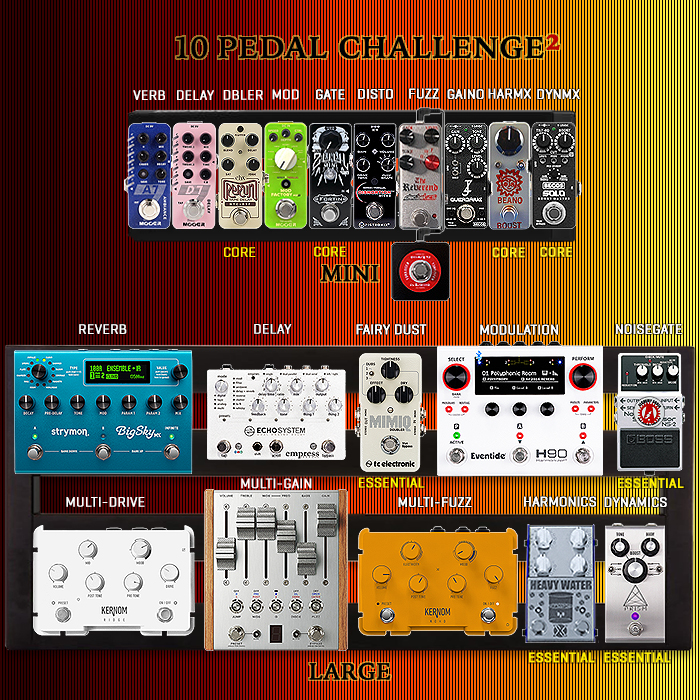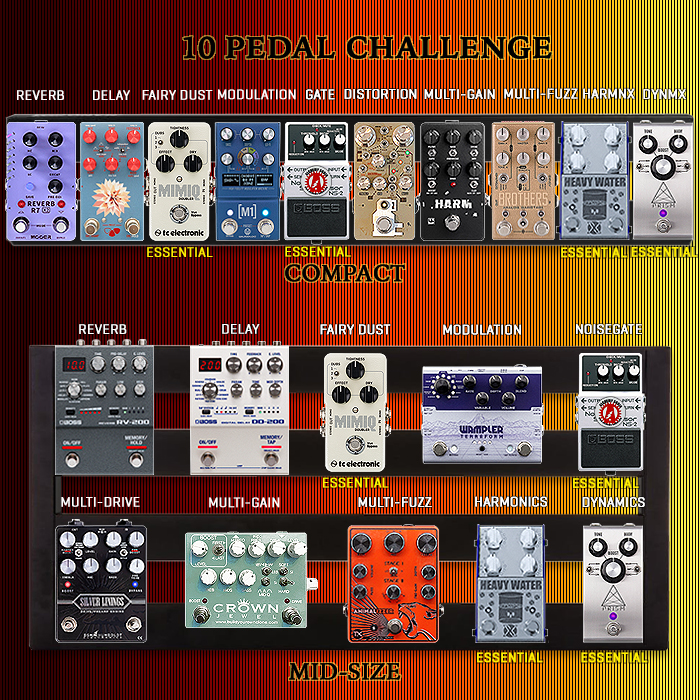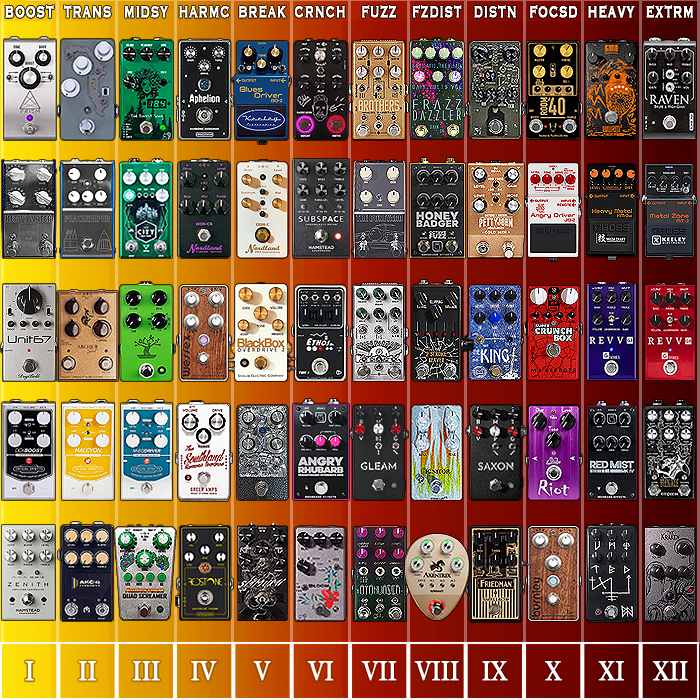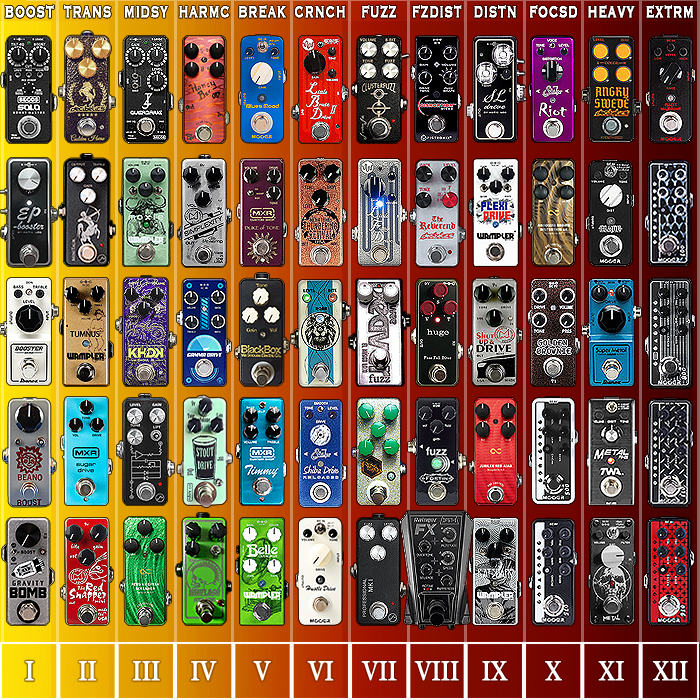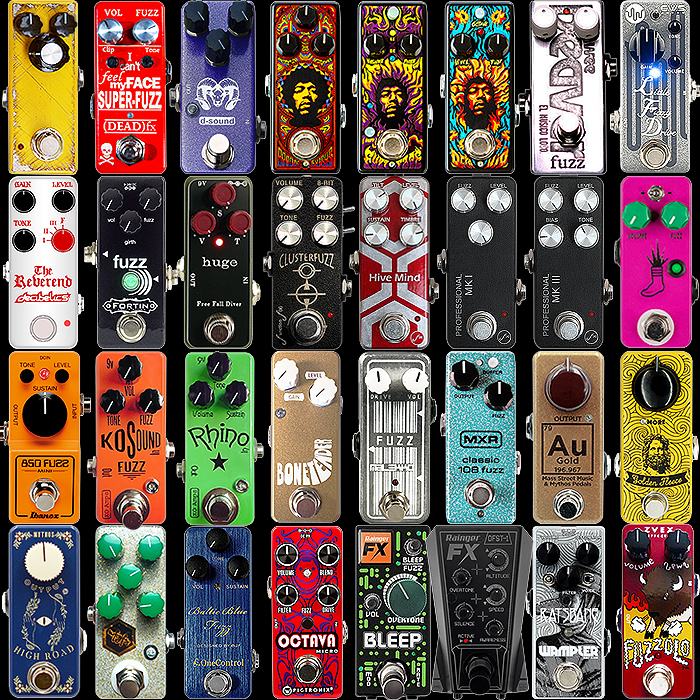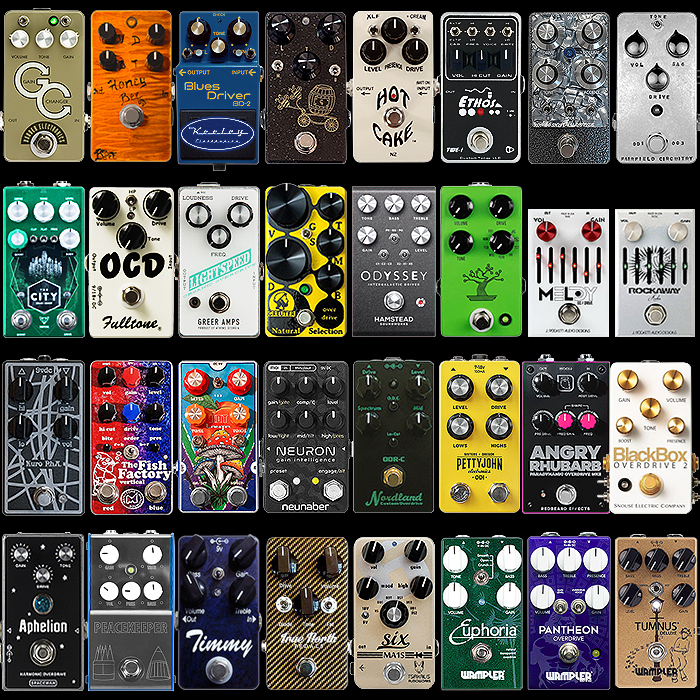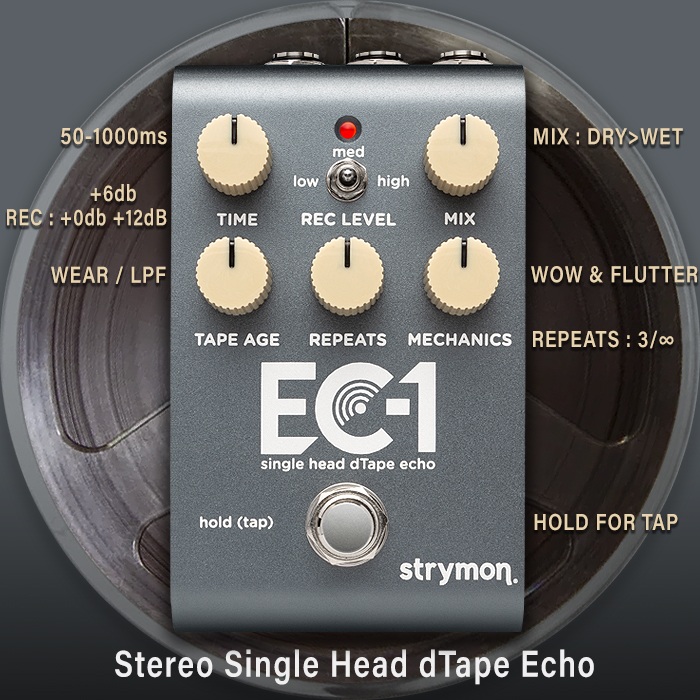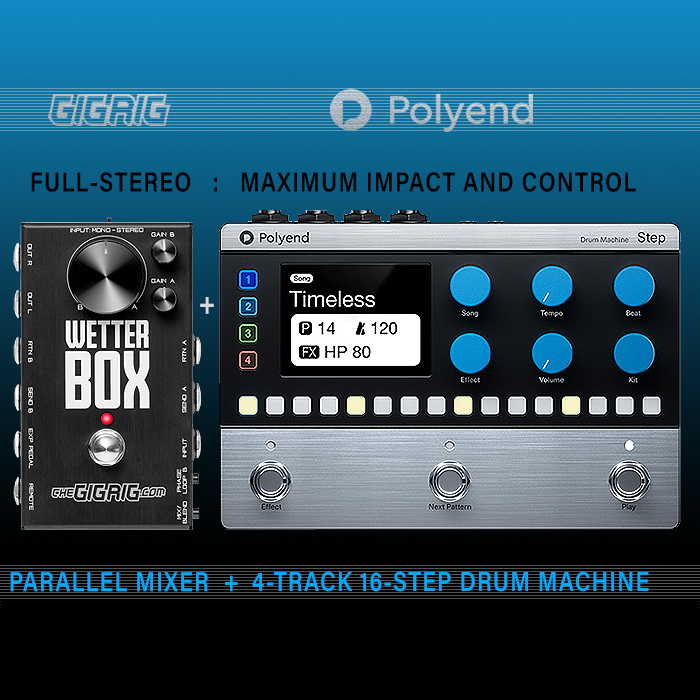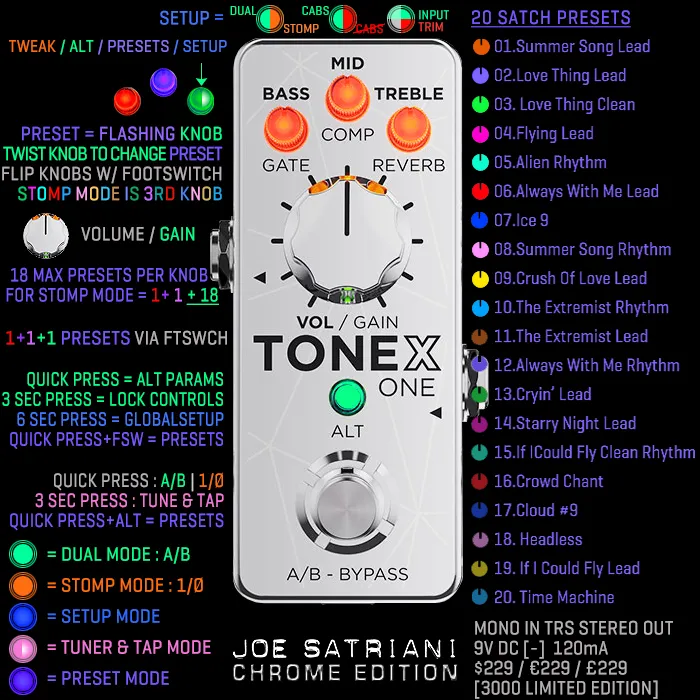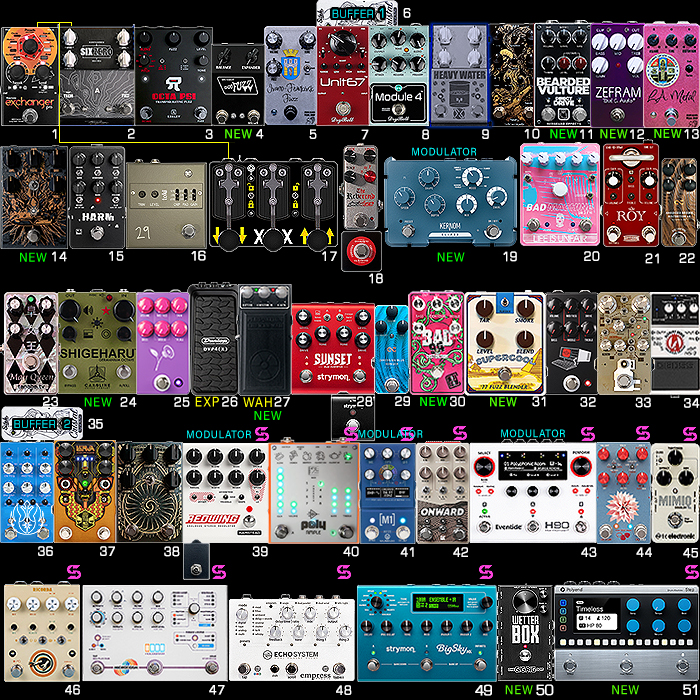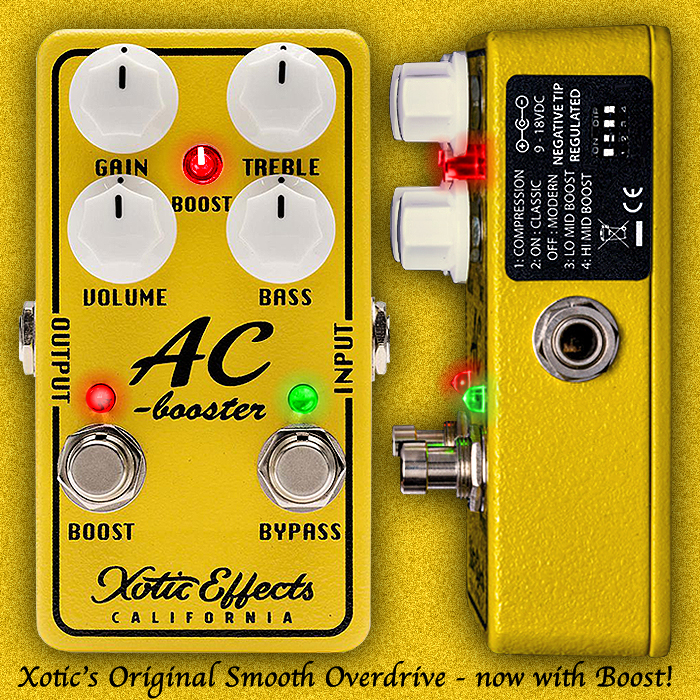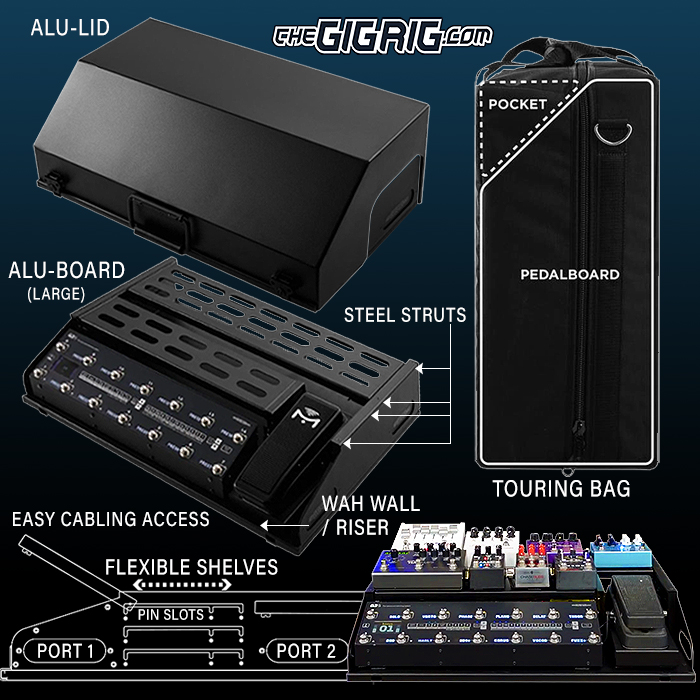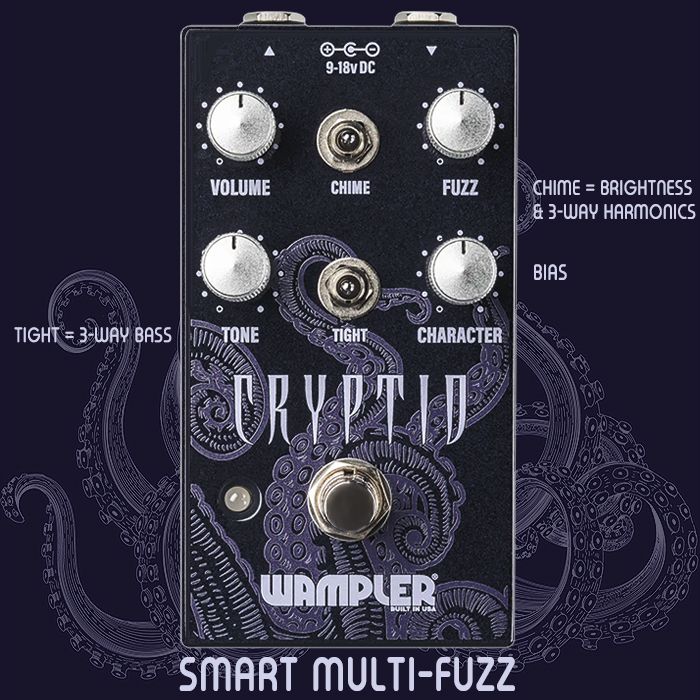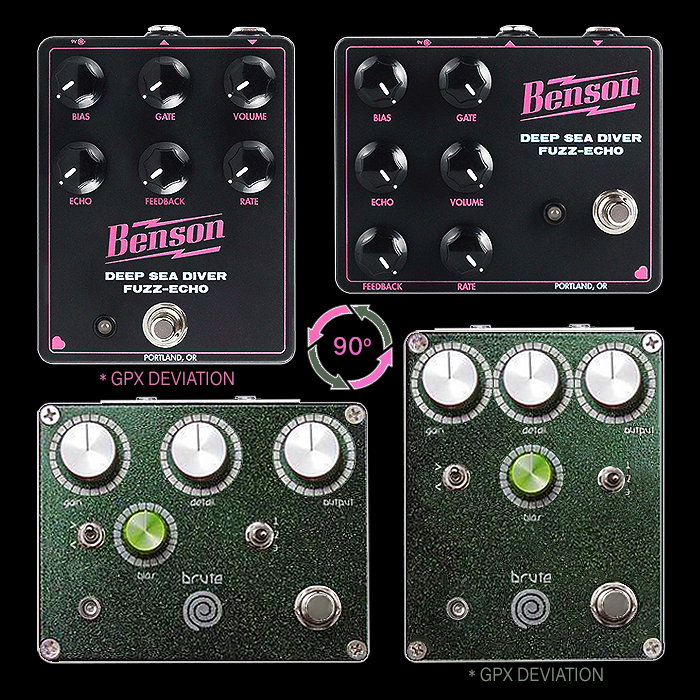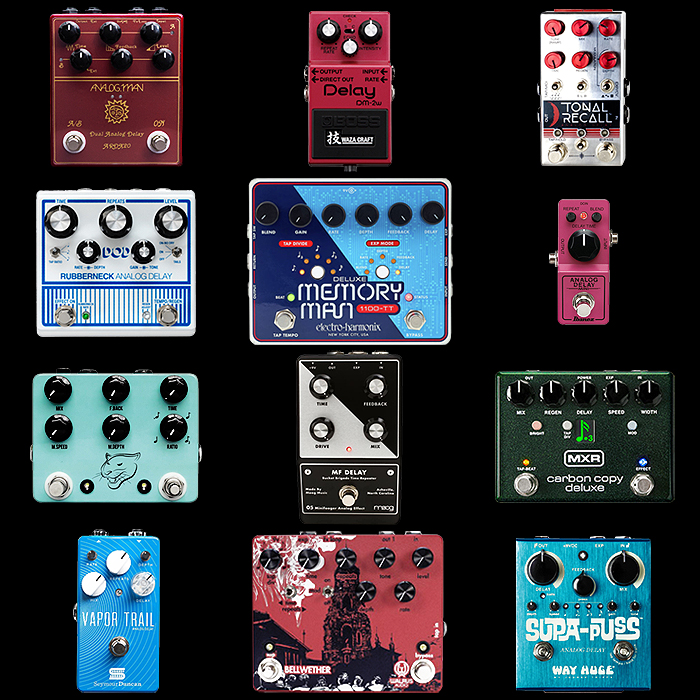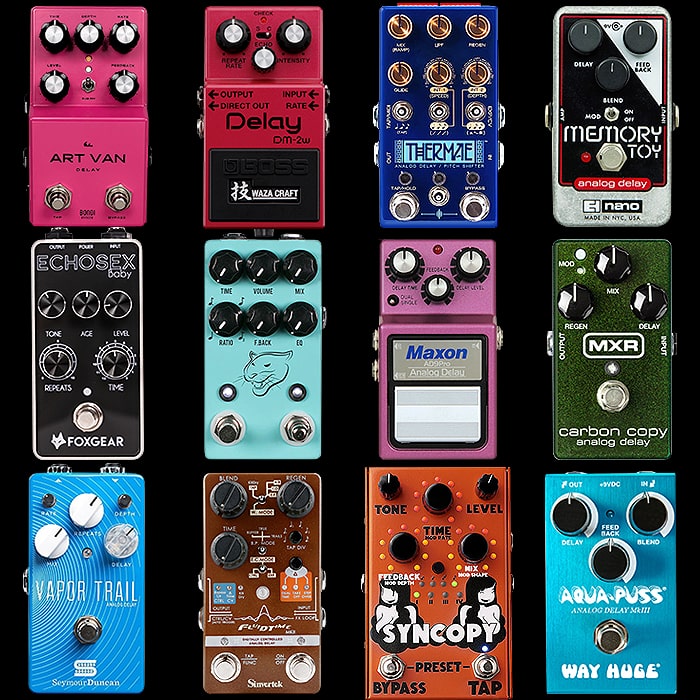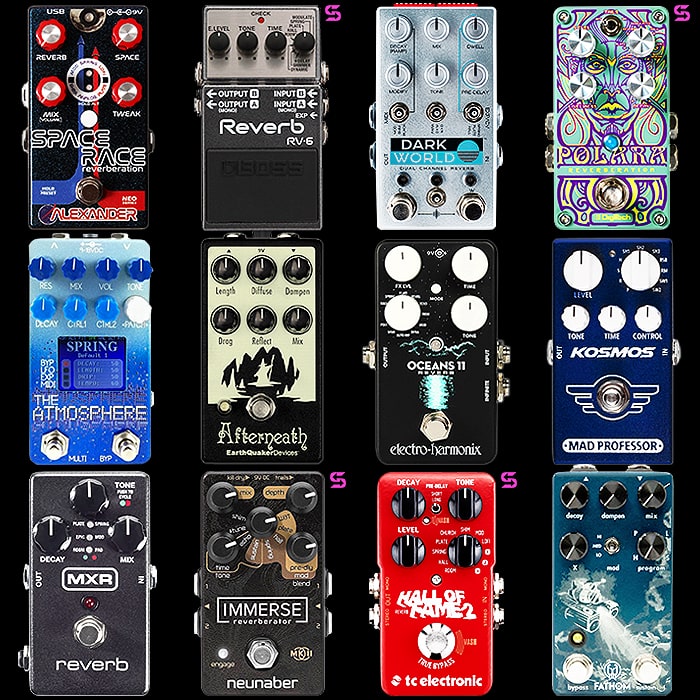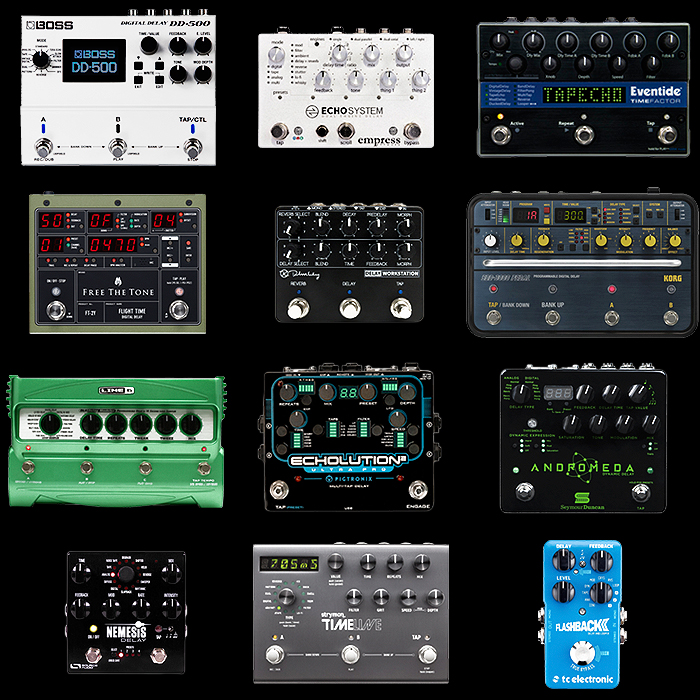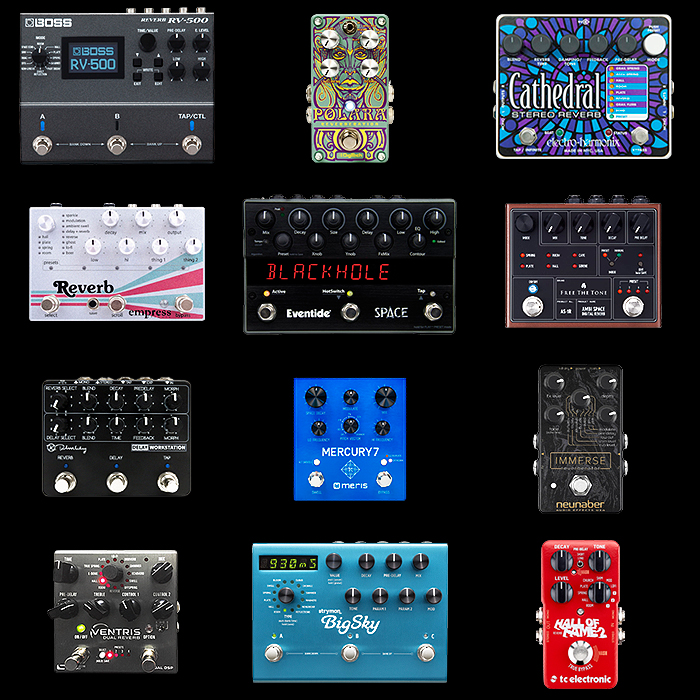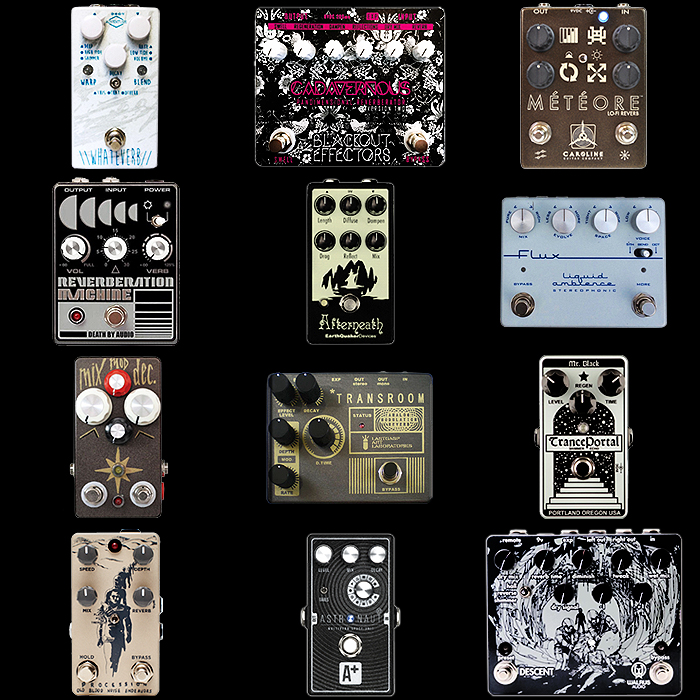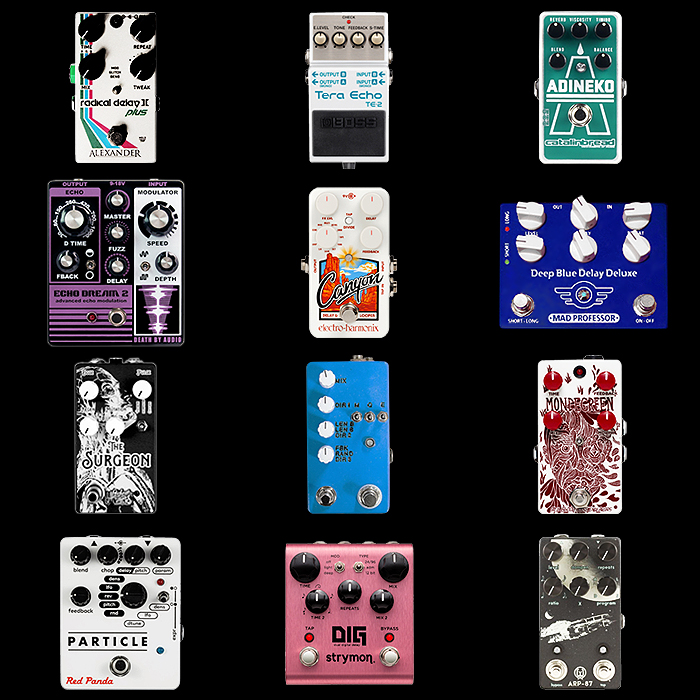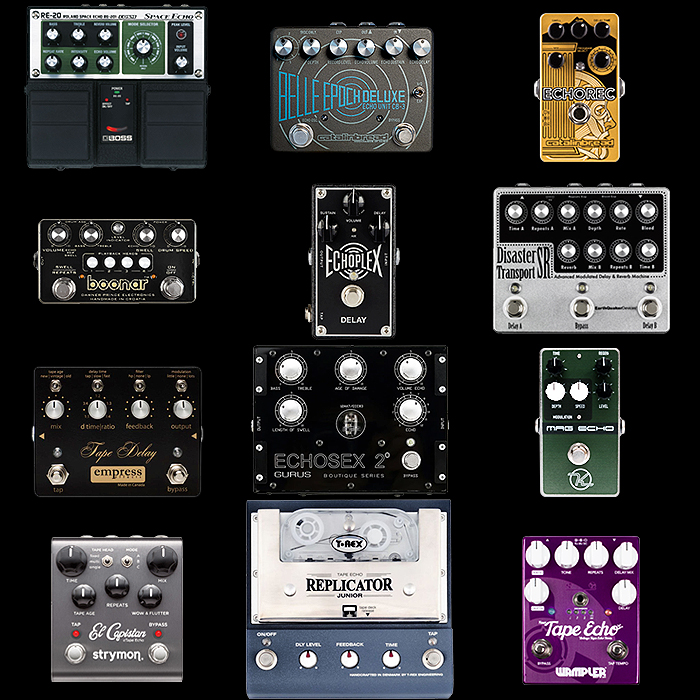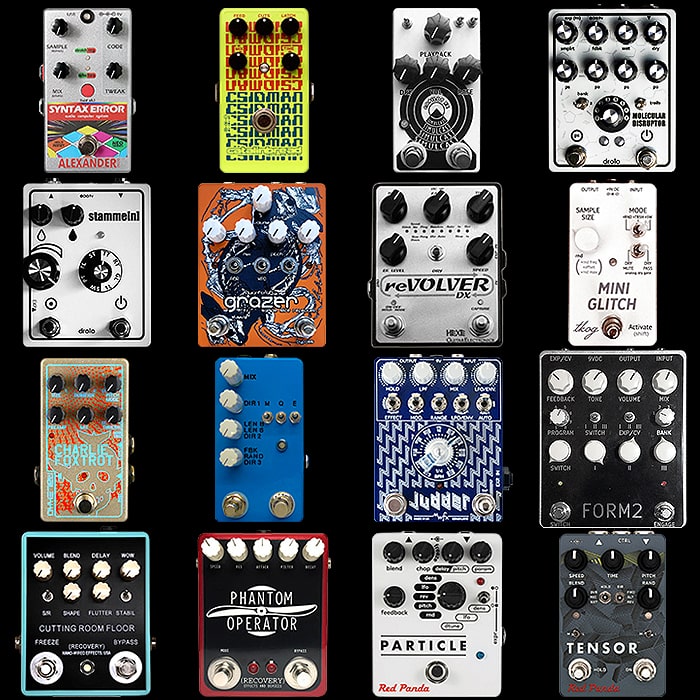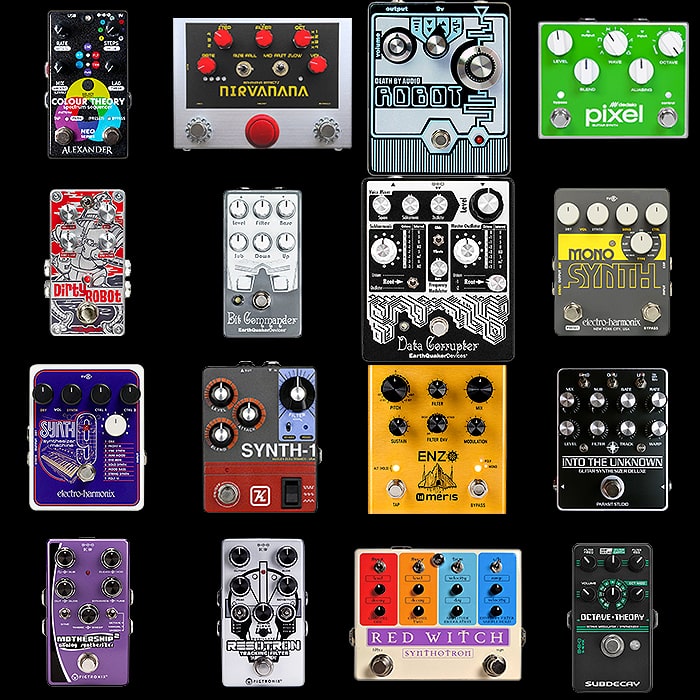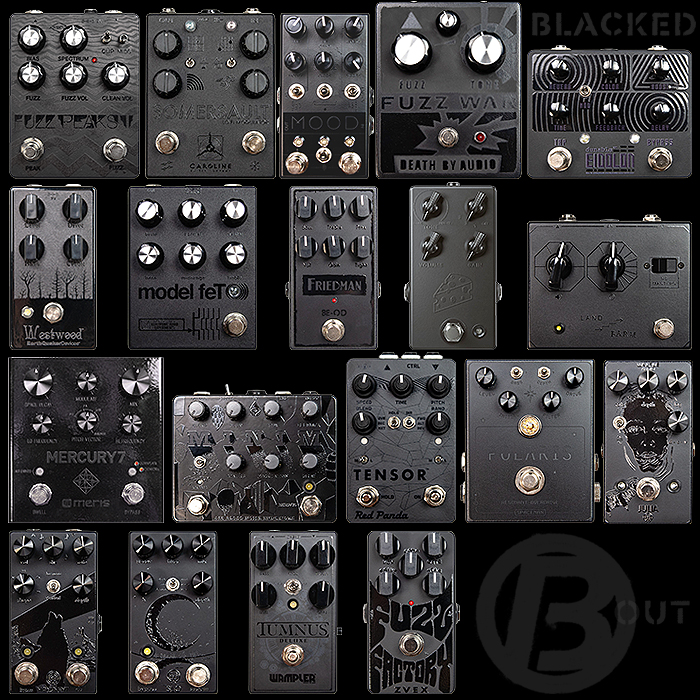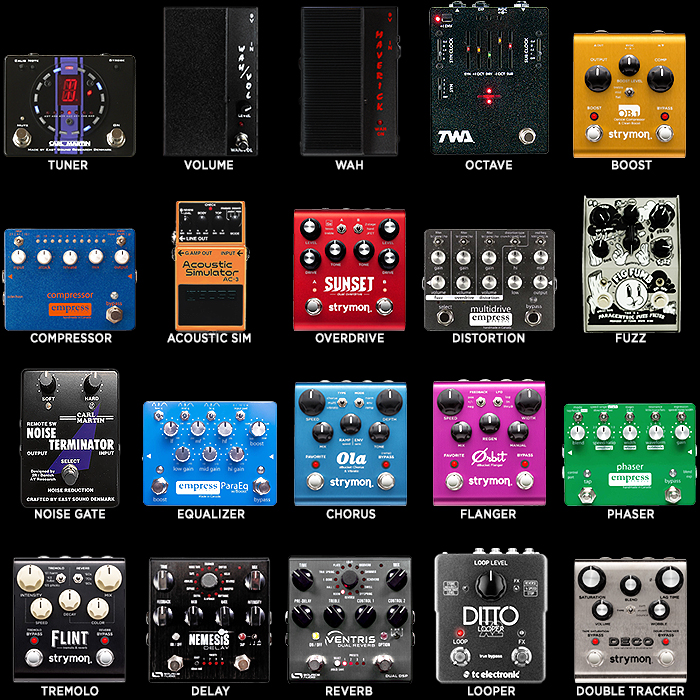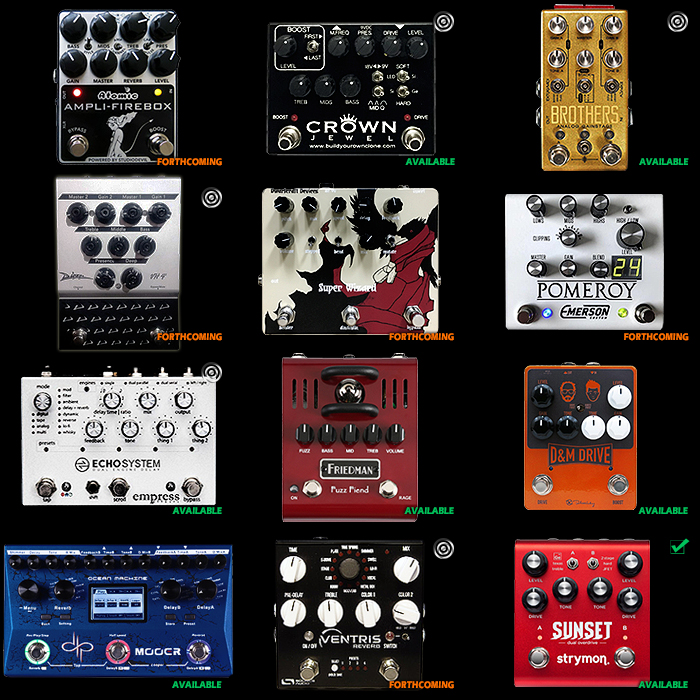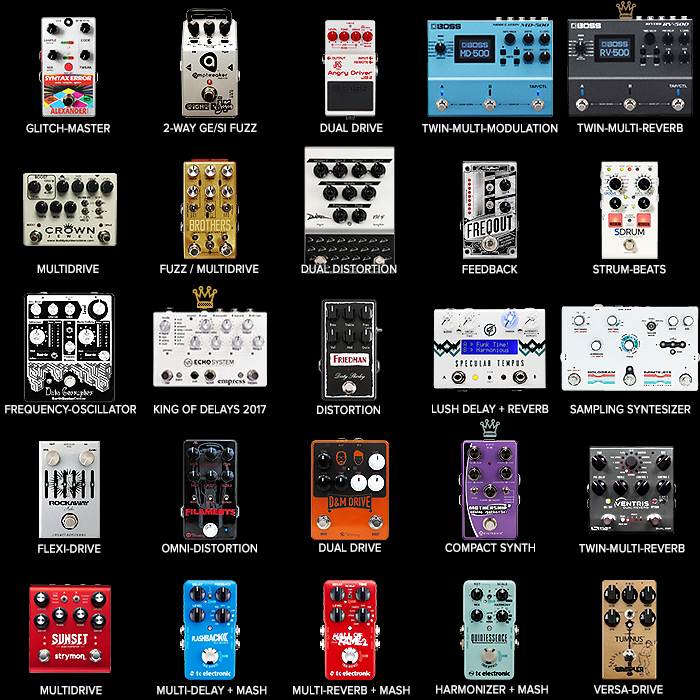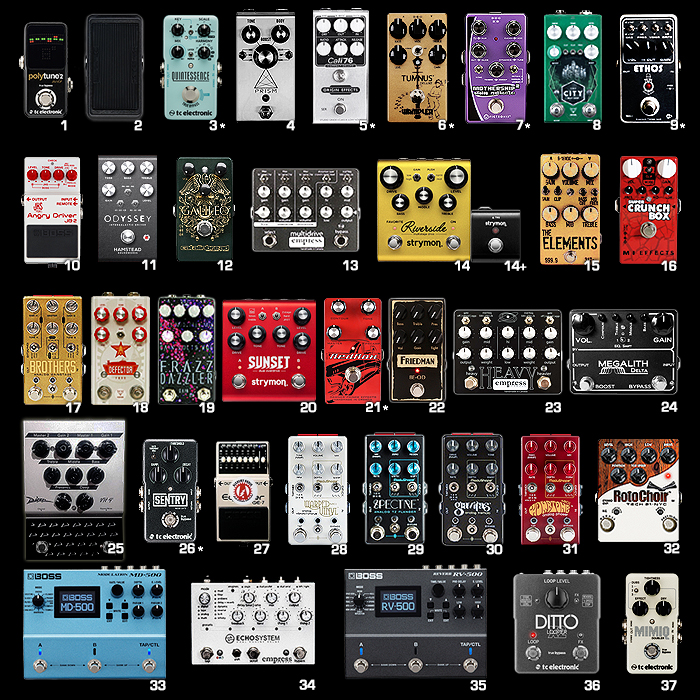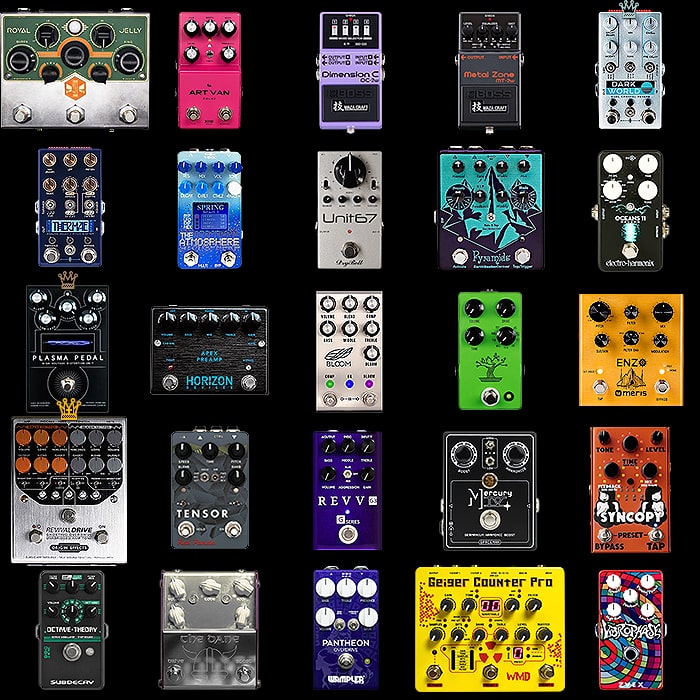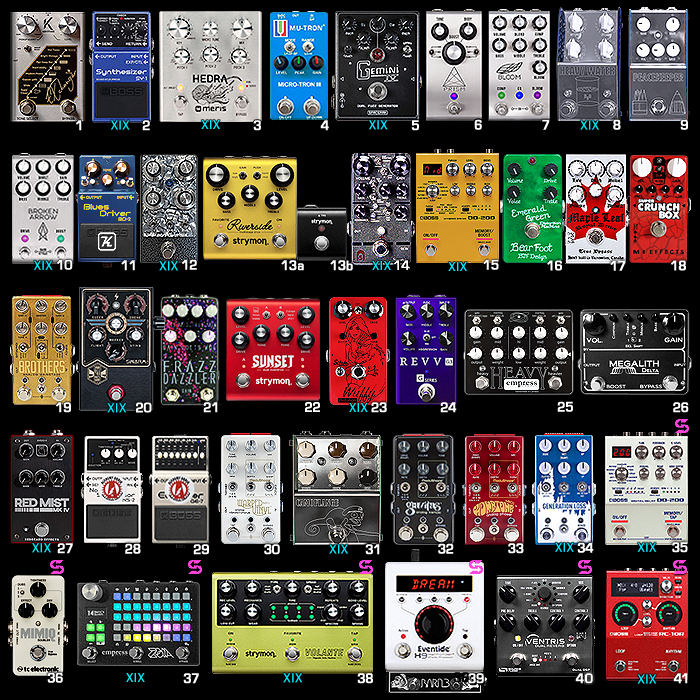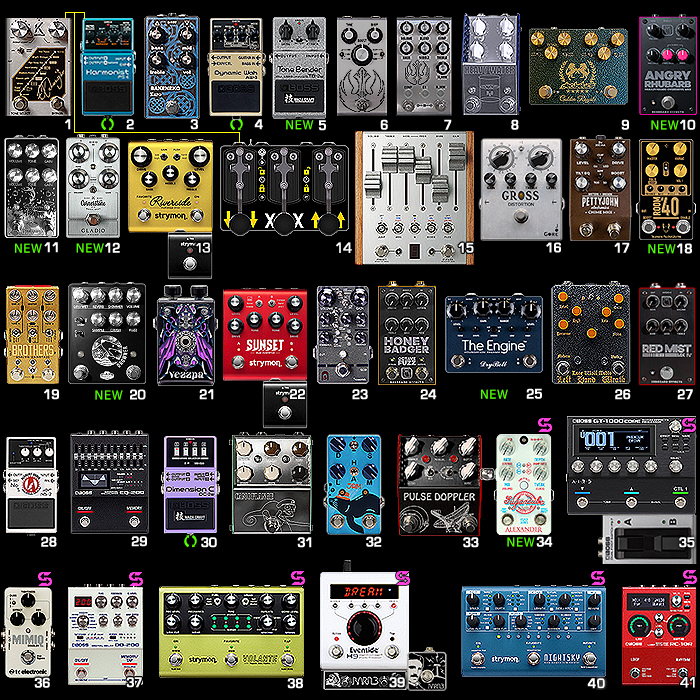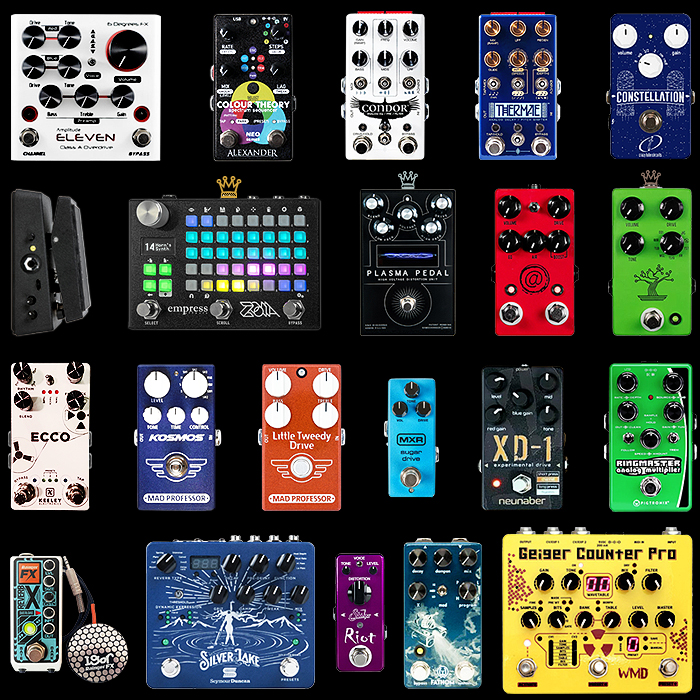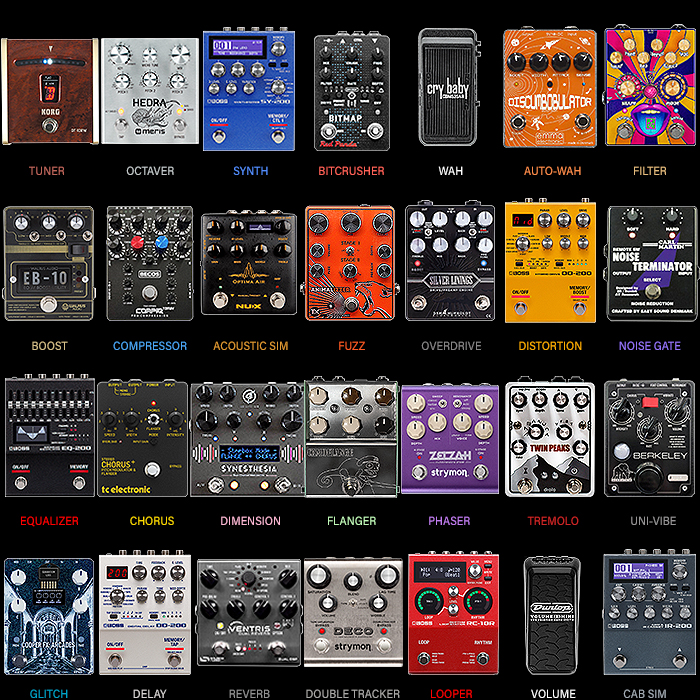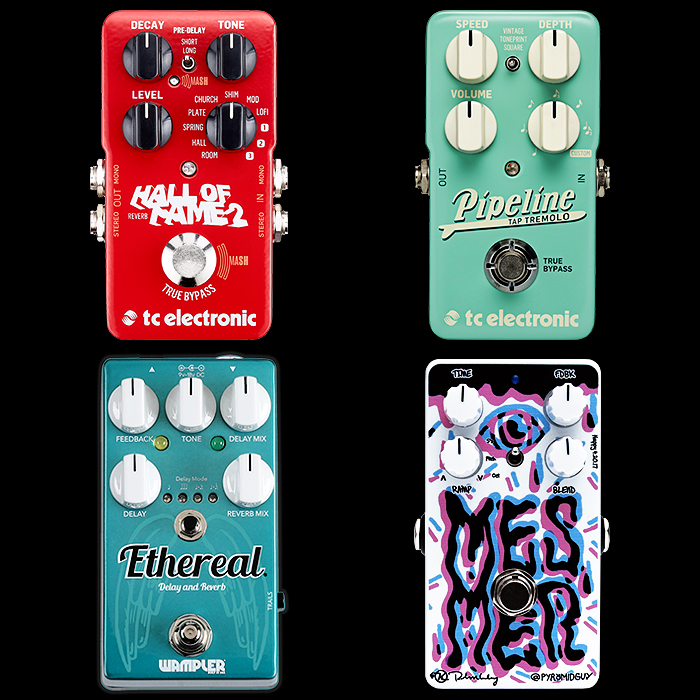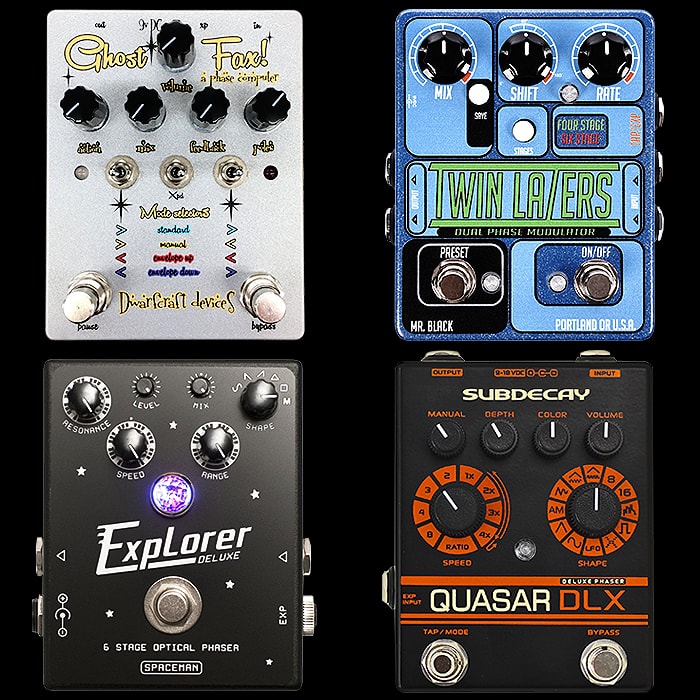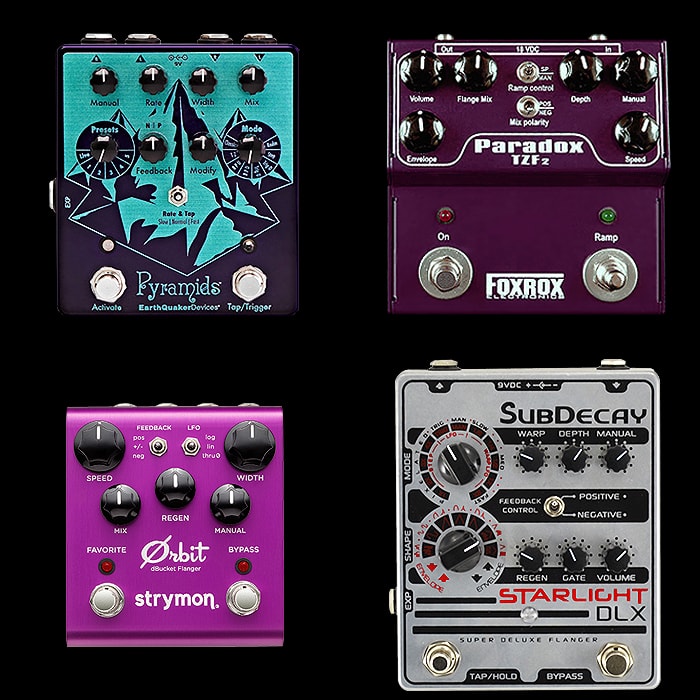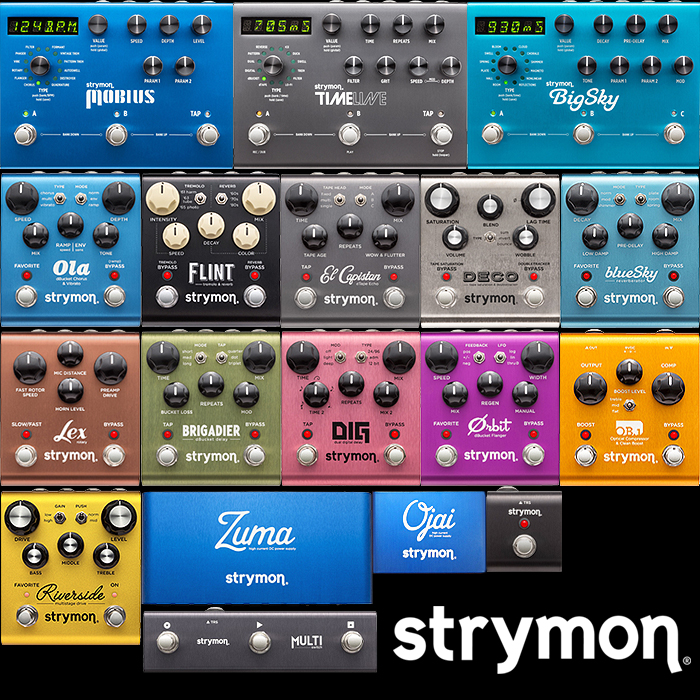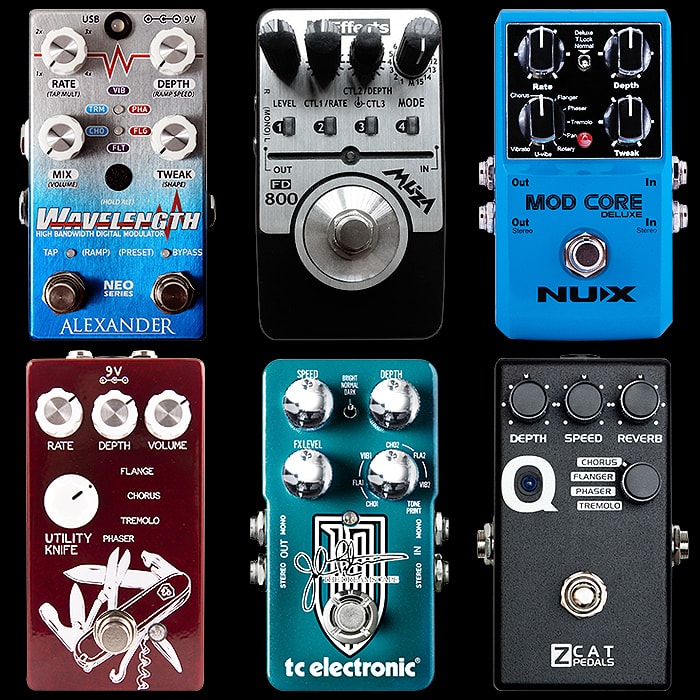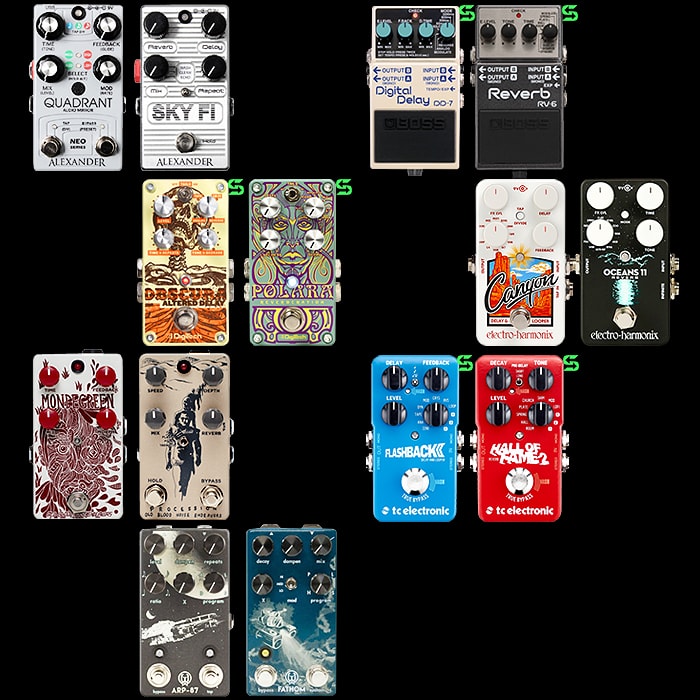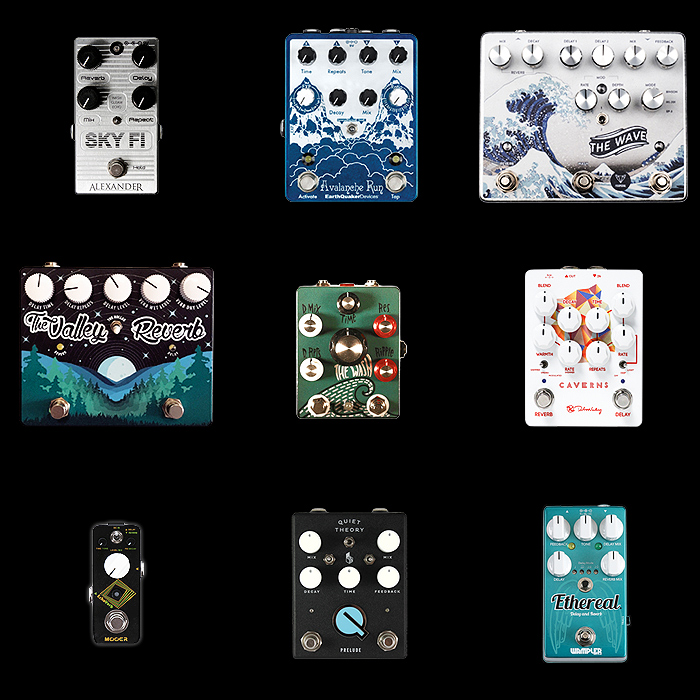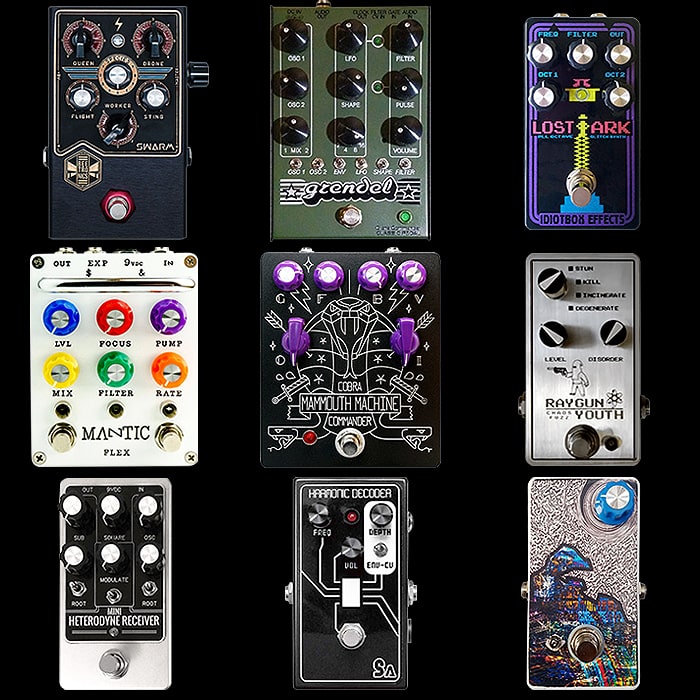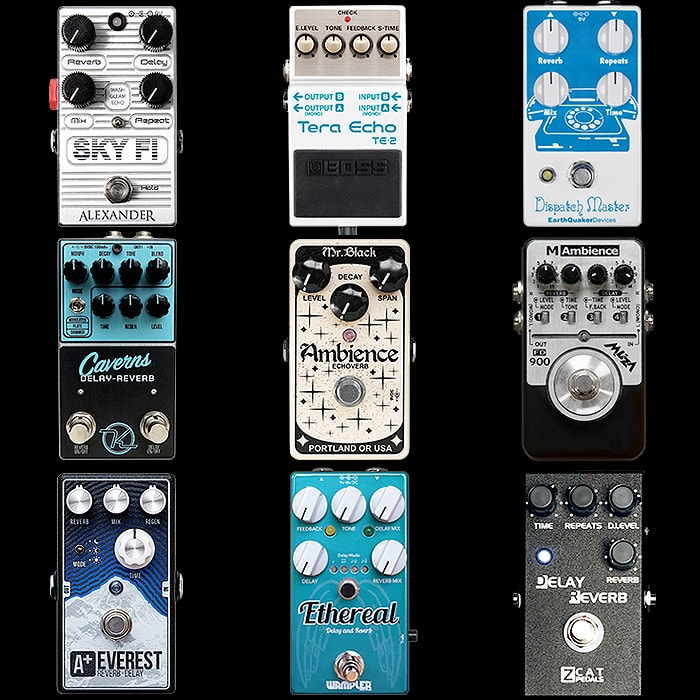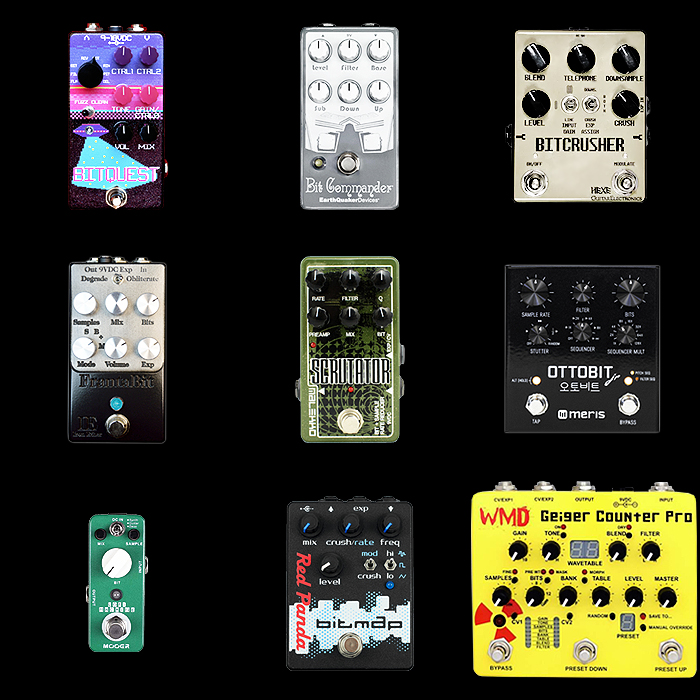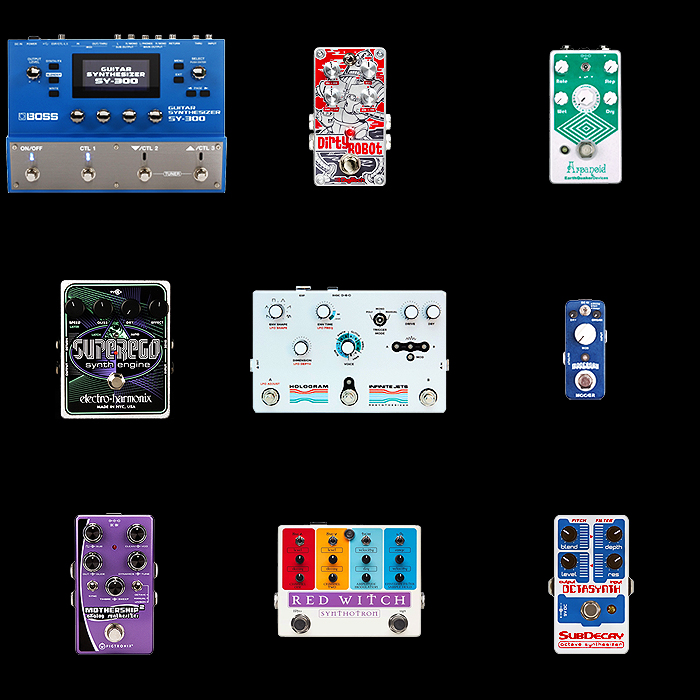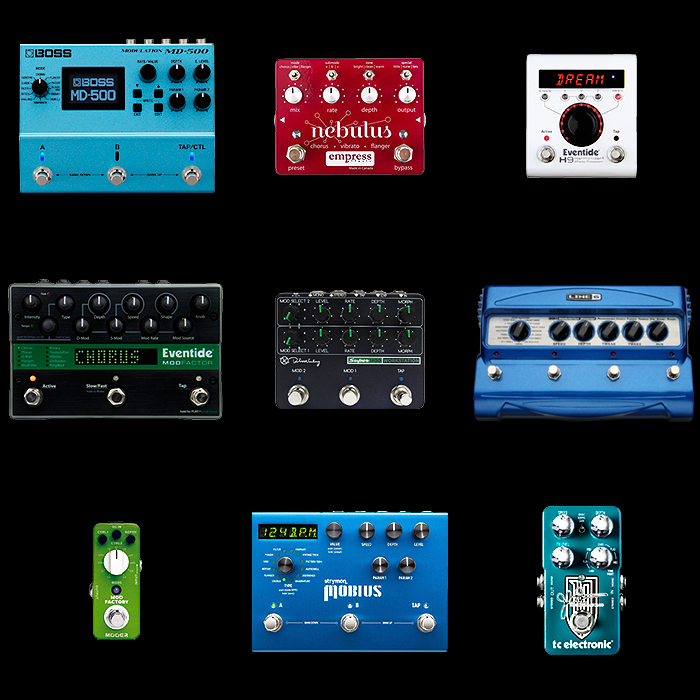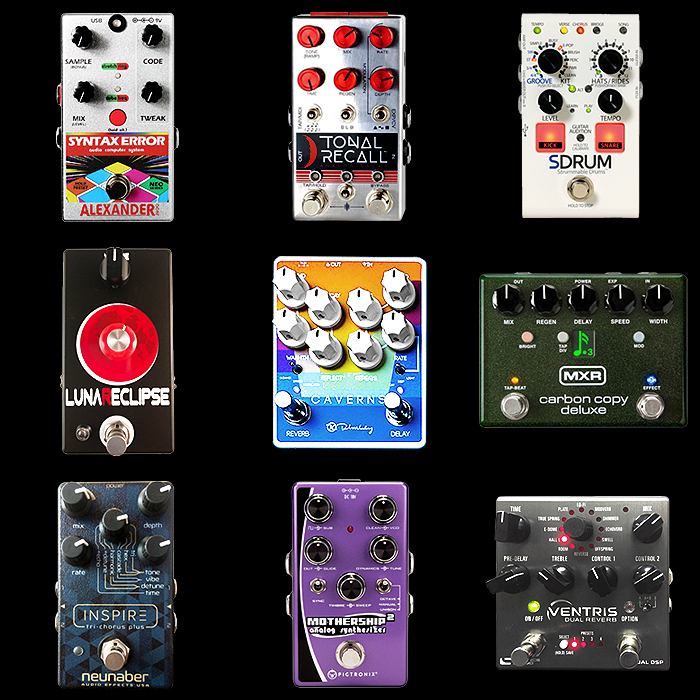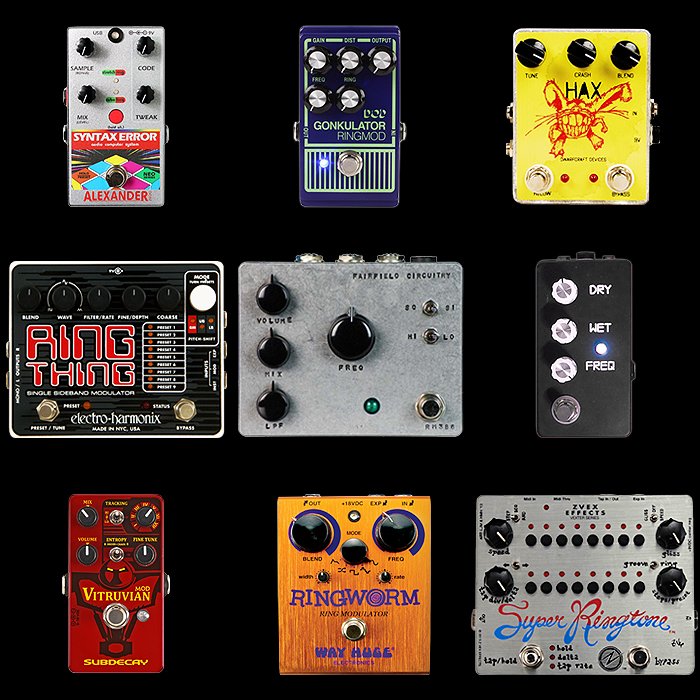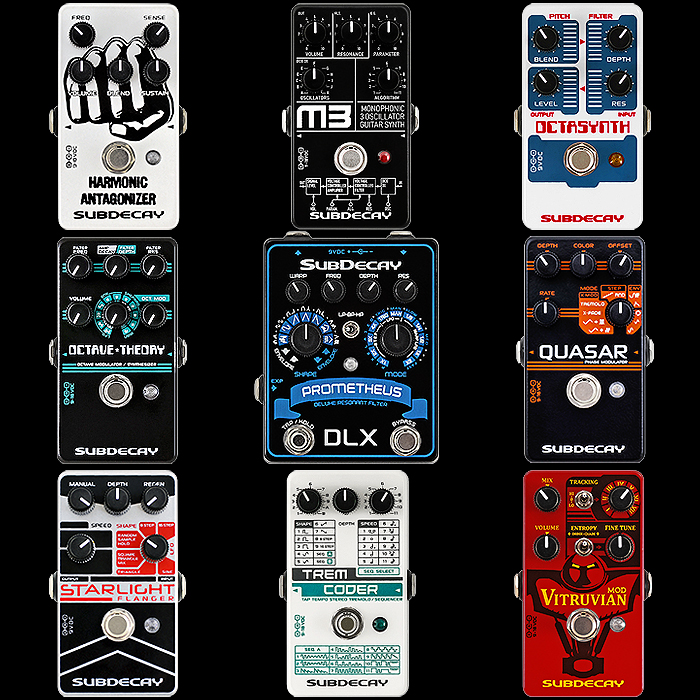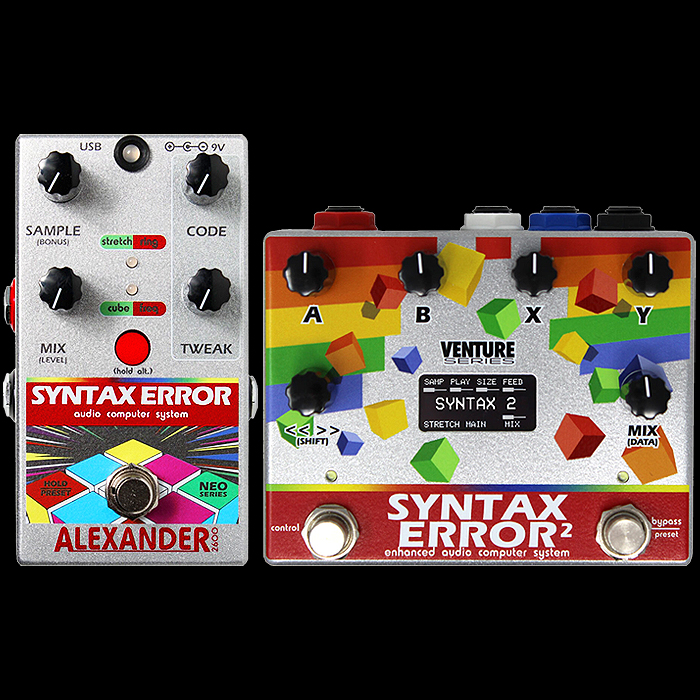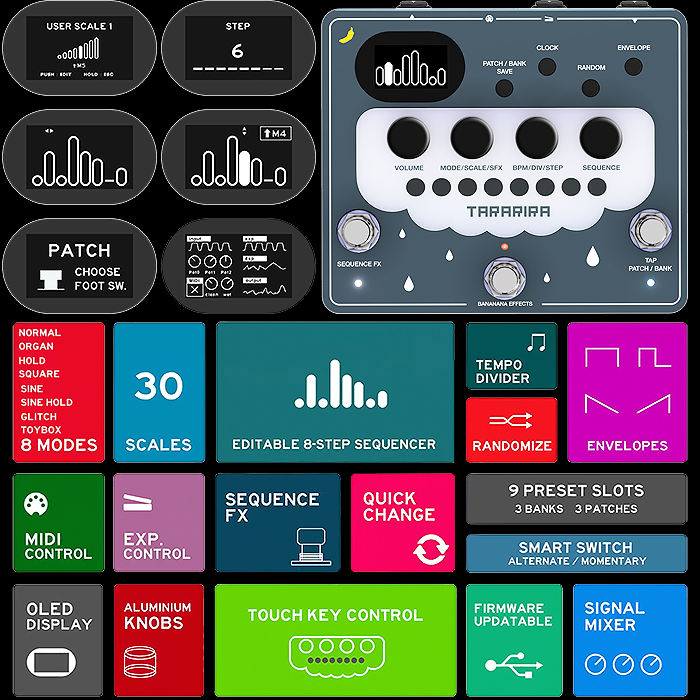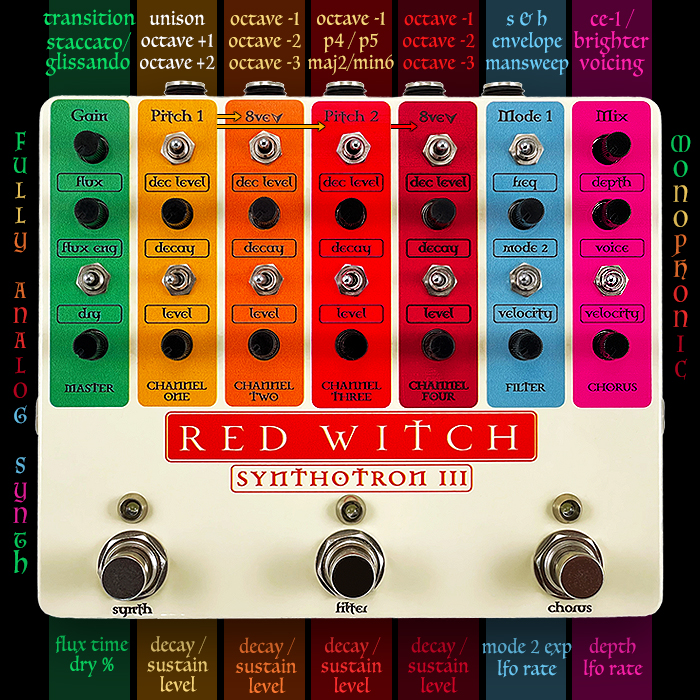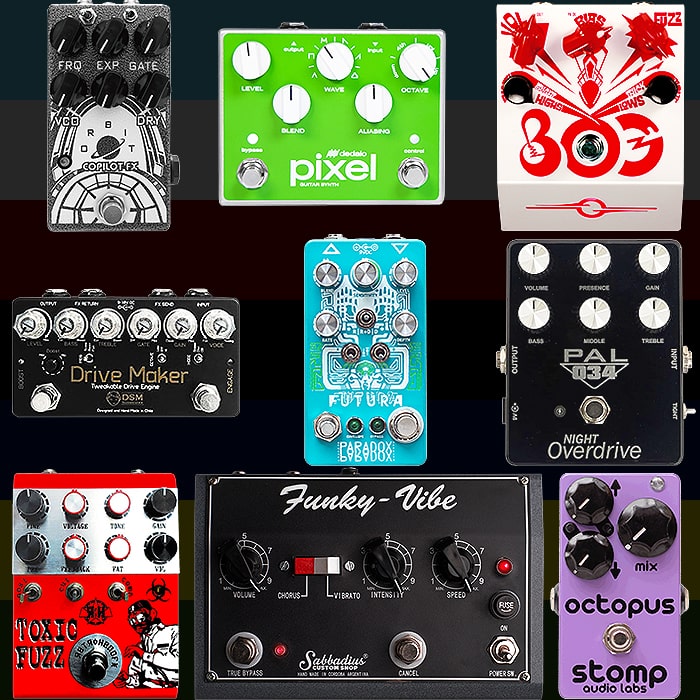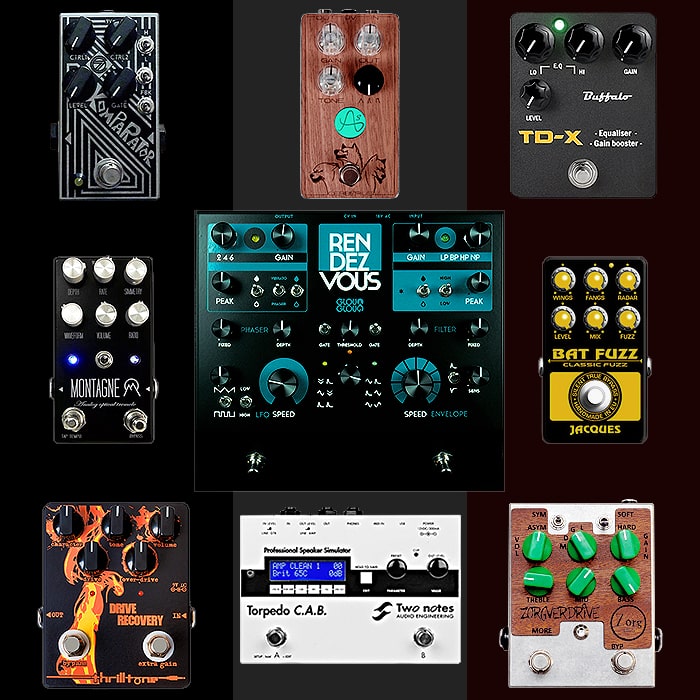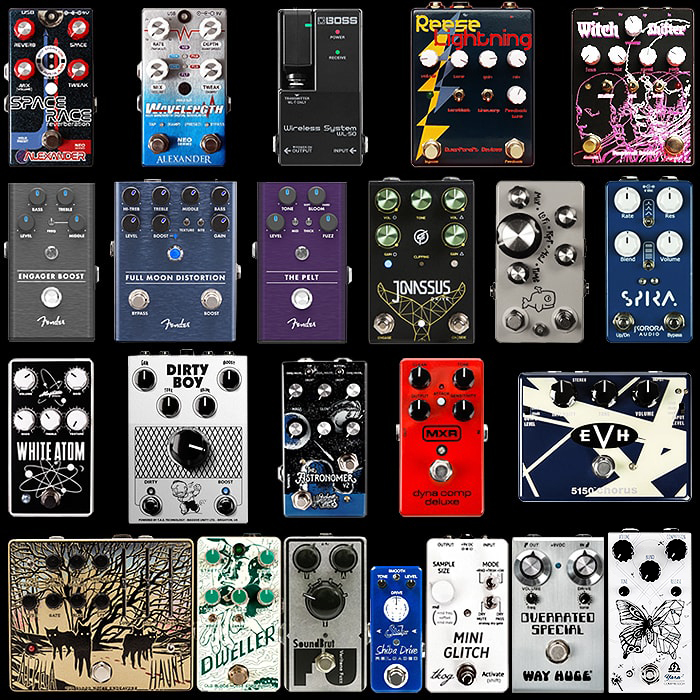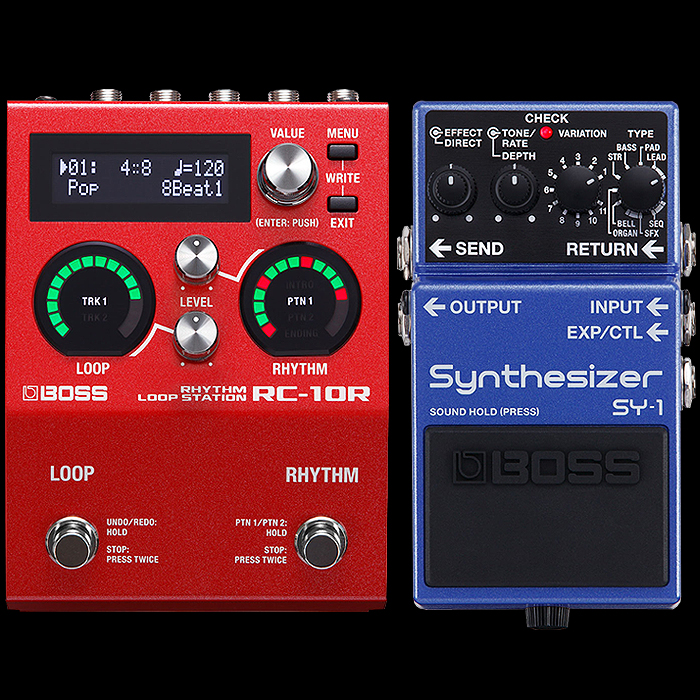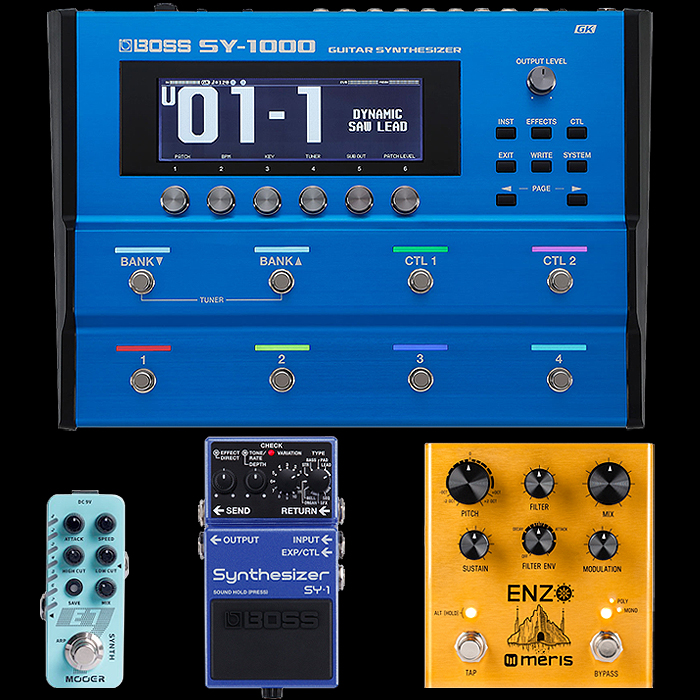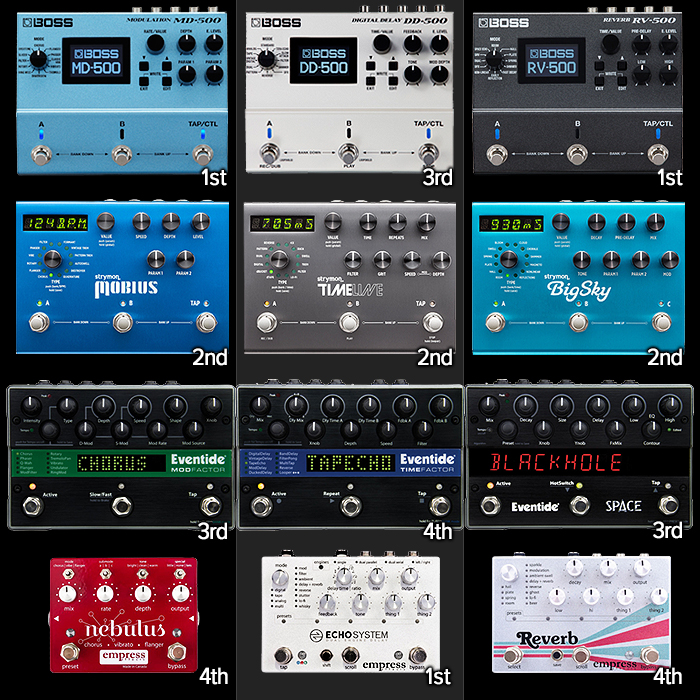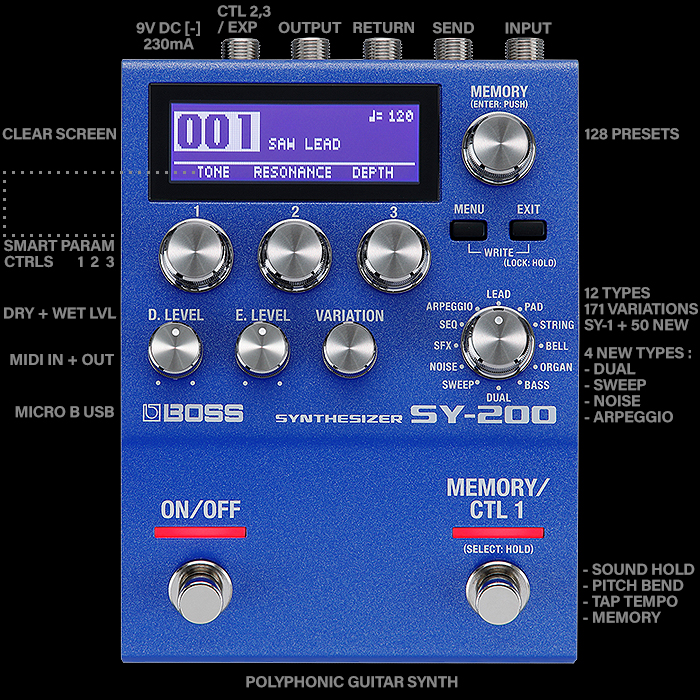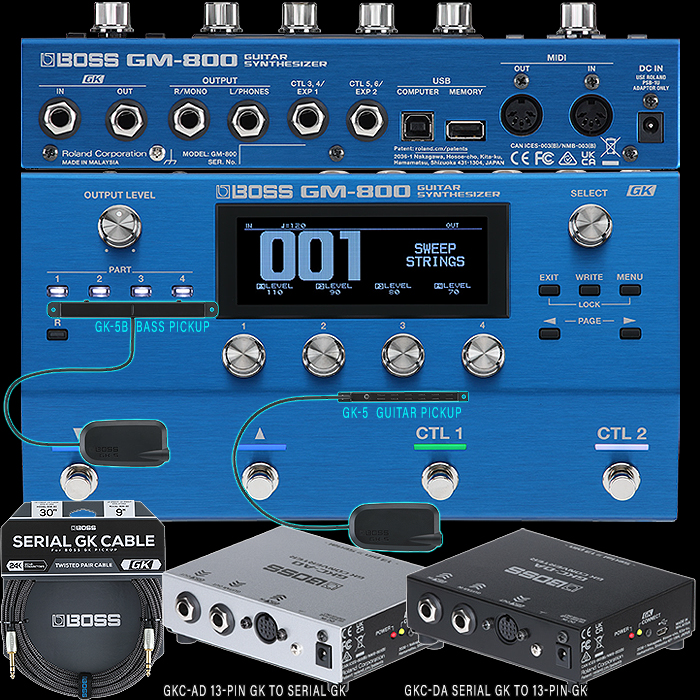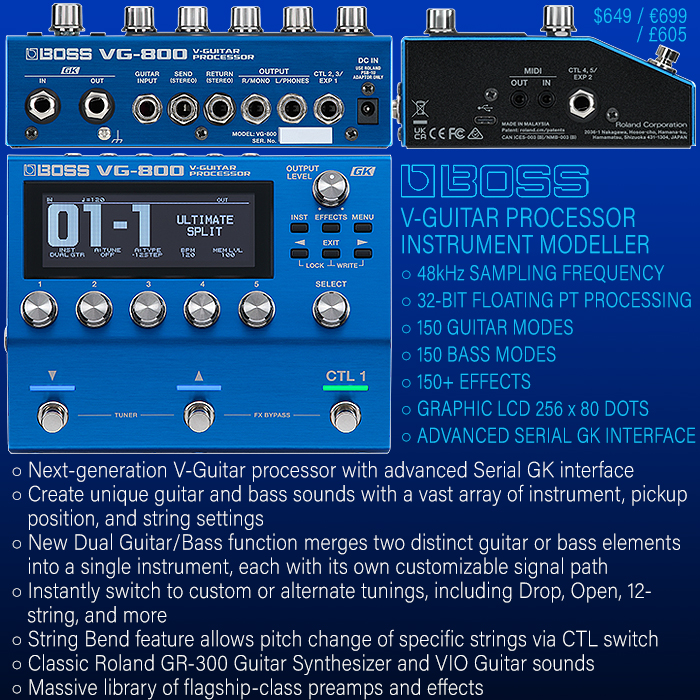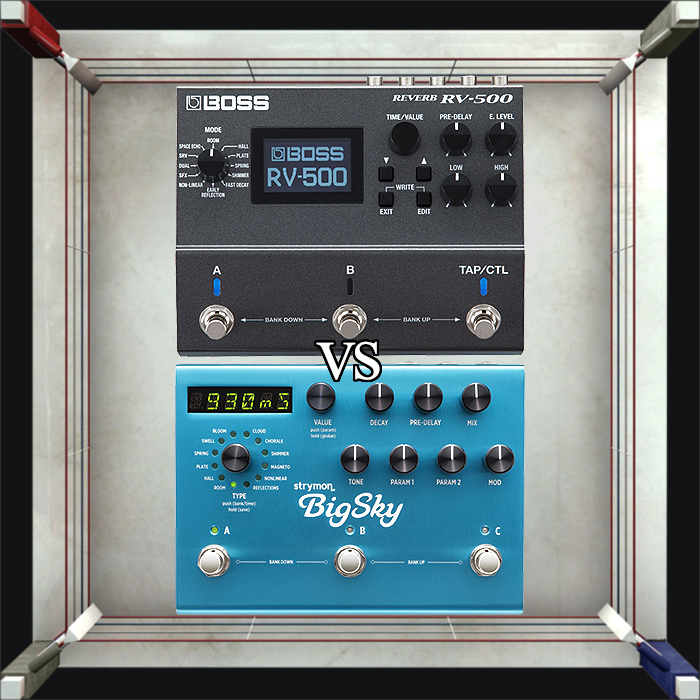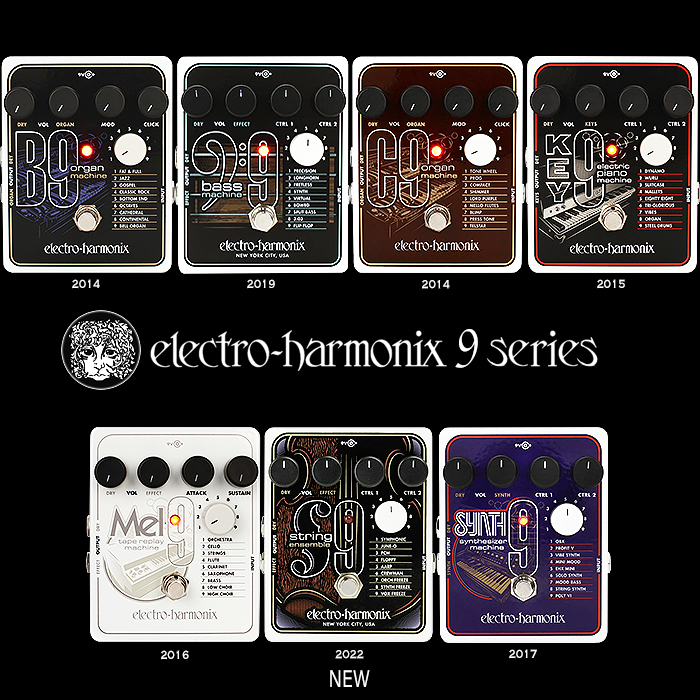Meris round off their Quartet / Quadfecta with probably their most appealing pedal to date - the Enzo Multi-Voice Synthesizer
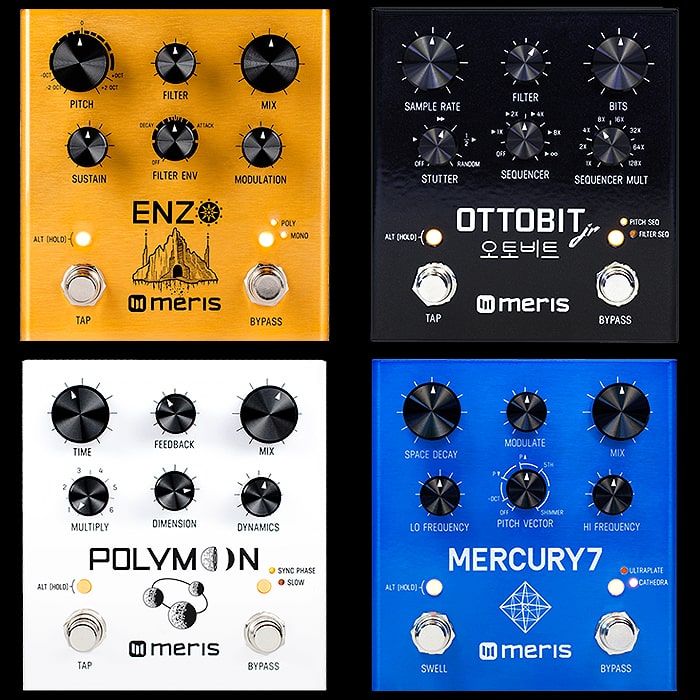
I have to start this piece by reiterating that the fantastic Meris is really just 3 people - Terry Burton, Jinna Kim and Angelo Mazzocco - with the last mentioned the main sound engineer. They were initially known for making 500 series rack format effects but have since made more of a name for themselves by releasing their signature effects in medium enclosure stompbox pedals - not that different in format from Strymon’s mid-sized boxes.
2017 was a bumper year for them as they released 3 magnificent pedals - first the Ottobit JR Bitcrusher and 6-Step Sequencer, then the Bladerunner-inspired Mercury 7 Ambient Reverb, and then the Super-Modulated Polymoon Delay. The initial roll-out was given a deft push by Juan Alderete and Nick Reinhart of Pedals and Effects fame - who have since become THE Meris advocates / experts - alongside Stefan Fast of The Pedal Zone.
Of the first 3 - the Mercury 7 has always appealed to me the most - while I always regarded Meris as slightly the leftfield choice in pedals. They don’t tend to cover as many algorithms as say Empress, Eventide, Source Audio and Strymon do, but instead go in really heavy on modulations and secondary functions and parameters on 2 to 4 core algorithms. So say for Reverb - you have just 2 core algorithms to play with - Ultraplate and Cathedra - but the largest amount of dial-tweakability through 2 x 6 controls - because of the Alt / Secondary functions.
The Ottobit JR is pretty unique in what it does although there are crunchier bitcrushers out there and more expansive guitar pedal sequencers - yet the combination of what the pedal does makes it really special, although also quite the specialist choice. The Mercury 7 Ambient Reverb is just a superbly atmospheric Reverb - it’s been on my wishlist for a while alongside the GFI System Specular Tempus which I may get first. Neither of those is likely to unseat my superb Source Audio Ventris pedal - were I also have the Boss RV-500 and Strymon BigSky as backups. The Mercury 7 is not really though intending to be all things to Reverb - just a few things really extraordinarily well. That is why I made the analogy that for most players the Meris pedals are more weekend sports cars as such rather than daily runarounds. For ambient players though the Mercury 7 would be a very fine choice for principal Reverb pedal.
The Polymoon is a sort of swirly / phasey / heavily modulated delay based around 3 core modes - Sync Phase, Slow, and Slow + Sync. It is an exceptional companion to the earlier released Mercury 7 Delay, but does quite evidently not contain the full roster of Delay Algorithms - compared with something like the Empress EchoSystem, Strymon TimeLine or Boss DD-500, or Source Audio Nemesis even. I think it’s the perfect foil for the Mercury if you have that or are thinking of getting it.
Finally, and just recently - we have the new Enzo Multi-Voice Guitar Synth with its 4 modes - Polyphonic, Mono, Arpeggiated and Dry. I am generally a fan of guitar synth pedals and already have the DigiTech Dirty Robot and Pigtronix Mothership 2 - both of which are capable of some great tones, but can be rather fiddly to dial in. I see the Meris Enzo as being THE synth pedal now in this compact to mid-sized category - by giving your more options than any of the other comparable pedals - making it the standout Meris pedal in the range - as the best all-rounder in its category. I also think they look to have cracked the issues that beset other pedals of this ilk - in extending the range of usable sounds, and making them easier to dial in. I think if you want a truly great compact-ish guitar synth pedal, then the Enzo is likely The One - while as the other 3 pedals in the range are more leftfield choices rather than all-rounder workhorses. The Enzo seemingly gives you more!
Weirdly and rather different to say Strymon pricing - which is $299 / £299 typically, somehow for Meris we have to pay an additional premium in the UK so $299 = £318?
Pedals are arranged by approximate running order, most demos here by Stefan Fast of The Pedal Zone - no one deploys Meris better than he:
Meris Enzo Multi-Voice Synthesizer - £318
Modes: Polyphonic, Mono, Arpeggiated, Dry
Parameters:
- Pitch | Portamento / Glide
- Filter | Filter Type - Ladder Lowpass, Ladder Shelving Bandpass, Ladder Highpass, State Variable Lowpass, State Variable Bandpass, State Variable Highpass
- Mix | Delay Level
- Sustain | Ring Modulation
- Filter Envelope | Filter Bandwidth / Resonance
- Modulation | Delay Feedback
Footswitches:
- Tap-Tempo | Envelope Type - Triggered Envelope / Envelope Follower | Hold for Max Delay Feedback
- True Bypass | Synth Waveshape - Sawtooth / Square
Meris Ottobit JR Bitcrusher and Sequencer (6-step) - £318
Modes: Pitch Sequencer | Filter Sequencer | Sample Rate Sequencer
Parameters:
- Sample Rate | Step 1 of Sequencer
- Filter | Step 2 of Sequencer
- Bits / Bit Rate 1-24 | Step 3 of Sequencer
- Stutter | Step 4 of Sequencer
- Sequencer Play Mode / Repeats | Step 5 of Sequencer
- Sequencer Multiply / Speed | Step 6 of Sequencer
Footswitches:
- Tap-Tempo | Hold to Freeze Stutter Buffer
- True Bypass | Buffered Bypass
Meris Polymoon Super-Modulation Delay - £318
Modes: Slow Stereo Barberpole Phaser | Sync Stereo Barberpole Phaser linked to quarter note | Slow + Sync Combined
Parameters:
- Time | Early Triangle Modulation to first repeats
- Feedback | Feedback Filter
- Mix | Delay Effect Level
- Multiply | Late Triangle Modulation to later repeats
- Dimension / Smear | Dynamic Flanger Mode - Envelope Down, Envelope Up, LFO
- Dynamics / Intensity | Dynamic Flanger Speed
Footswitches:
- Tap-Tempo | Dotted Eighths | Hold to engage half-speed
- Bypass | Hold for Dynamic Flanger Feedback
Meris Mercury 7 Bladerunner-inspired Ambient Reverb - £318
Modes: Ultraplate Lush Plate Reverb with fast build | Cathedra Massive Ethereal Dome / Arena style Reverb with slow build
Parameters:
- Space Decay | Predelay
- Modulate | Modulation Speed
- Mix | Pitch Vector / Reflections Mix - degree of variation
- Lo Frequency Tone | Density / Initial build-up
- Pitch Vector Intervals / Shimmer | Attack Time
- Hi Frequency Tone | Vibrato Depth
Footswitches:
- Swell / Sustain
- True Bypass | Buffered Bypass (for trails)
Final Thoughts
For ambient players, 3 of these are potential must-haves - the Enzo, Polymoon and Mercury 7 - while the Ottobit JR is a somewhat specialist adjunct more at home with experimental players. As I've said in the intro - I feel that for regular players who want a wide degree of versatility - these may not be their first choice pedals as there are plenty others which offer all the more typical algorithms. I stated Quadfecta in the title, where all these pedals are excellent in their own way, while the more rounded truth would be the Trifecta of Ambient Effects described above - Enzo + Polymoon + Mercury 7!
I see these as great secondary alternatives for regular players, or for players who have very much settled on their core sound and don't need or want the additional versatility a Boss, Empress, Eventide, Source Audio or Strymon can provide.
I actually really like all of these each in their own way, and for me the standout here is the new Enzo - followed by the Mercury 7. I just can't see myself using the Ottobit JR that much, and I'm not sure it would ever be a principal pedal in my rig. While I can see the Enzo as being lots of players' preferred Synth pedal. And while I really like what the Polymoon and Mercury 7 do - for me they are really great for occasional rotation within the pedal-chain.
The one here I'm most likely to acquire is the Enzo, followed by the Mercury 7 - although as I stated earlier - I will probably get the GFI Specular Tempus before I get the Mercury. There is no doubting though that these are really smart and well-put-together pedals - which all sound tremendous and work really cleverly together. Meris has additional midi accessories for presets and grouped control if you are intending to use several of these together.

